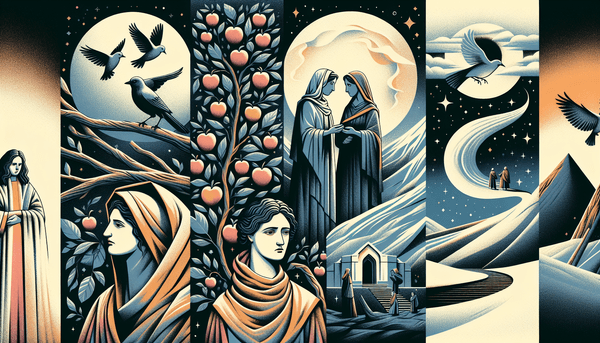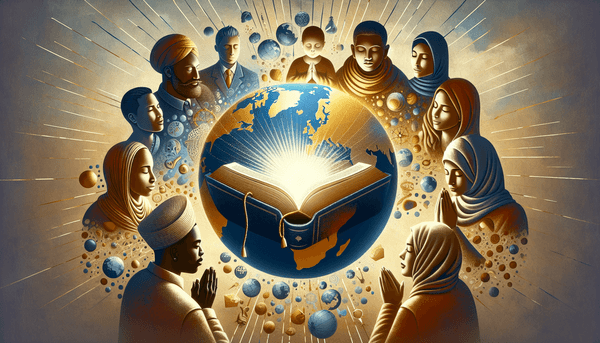Ruth's Loyalty to Naomi: A Model of Virtue
Ruth's steadfast commitment to Naomi, as narrated in the Book of Ruth, provides a powerful testament to the strength of loyalty and love. In the face of adversity and Naomi's own insistence that Ruth return to her mother's house, Ruth chose instead to cleave to Naomi and boldly declared, 'Where you go I will go, and where you stay I will stay. Your people will be my people and your God my God' (Ruth 1:16-17). This profound pledge highlights Ruth's deep commitment to her relationship with Naomi, her selflessness, and her faith. Ruth's journey with Naomi to Bethlehem would eventually lead to her remarriage and inclusion in the lineage of King David, demonstrating how her loyalty and faith bridged cultural divides and built a foundation for the future (Ruth 4:13-15). Moreover, her story invites us to reflect on our own relationships and the depth of commitment we are willing to offer.
The Riches of Zion: Understanding Its Spiritual Significance
Zion holds a prominent place in biblical literature, symbolizing both the physical city of Jerusalem and a spiritual realm where God dwells among His people. Described as 'the City of our God' and 'the joy of the whole earth' (Psalm 48:1-2), Zion represents the blessings of the Lord and the unity of worship. David and Solomon significantly contributed to Zion's status as a center of worship and prosperity (Psalm 132:13-14). The concept of a heavenly Zion, as prophesied in Isaiah and revealed in the book of Revelation, speaks to the future hope and eternal promise of God's kingdom (Revelation 21:2-3). The imagery of Zion evokes a sense of collective gathering and worship, where believers from all walks of life come together in unity, reflecting the heavenly assembly described in Hebrews 12:22-24.
FAQ
Q: How did Ruth's loyalty to Naomi demonstrate her character?
A: Ruth's loyalty to Naomi showcased her unwavering commitment, love, and selflessness, as she chose to leave her homeland and adopt Naomi's people and God as her own, demonstrating remarkable faith and a deep bond with her mother-in-law.
Q: What are the implications of Ruth choosing Naomi's God as her own?
A: Ruth's decision to adopt Naomi's God represented a significant spiritual turning point, reflecting her faith in the God of Israel and willingness to embrace a new identity in a foreign land.
Q: How does the Song of Solomon contribute to our understanding of love?
A: The Song of Solomon provides a poetic exploration of romantic love, offering a glimpse into the depth and beauty of love and the importance of nurturing committed relationships, with potential allegorical interpretations of divine love.
Q: What spiritual significance does Zion hold in the Bible?
A: Zion is symbolically significant as God's dwelling place, a center of worship, and a representation of heavenly hope and eternal promise. It also reflects the unity and worship of God's people.






